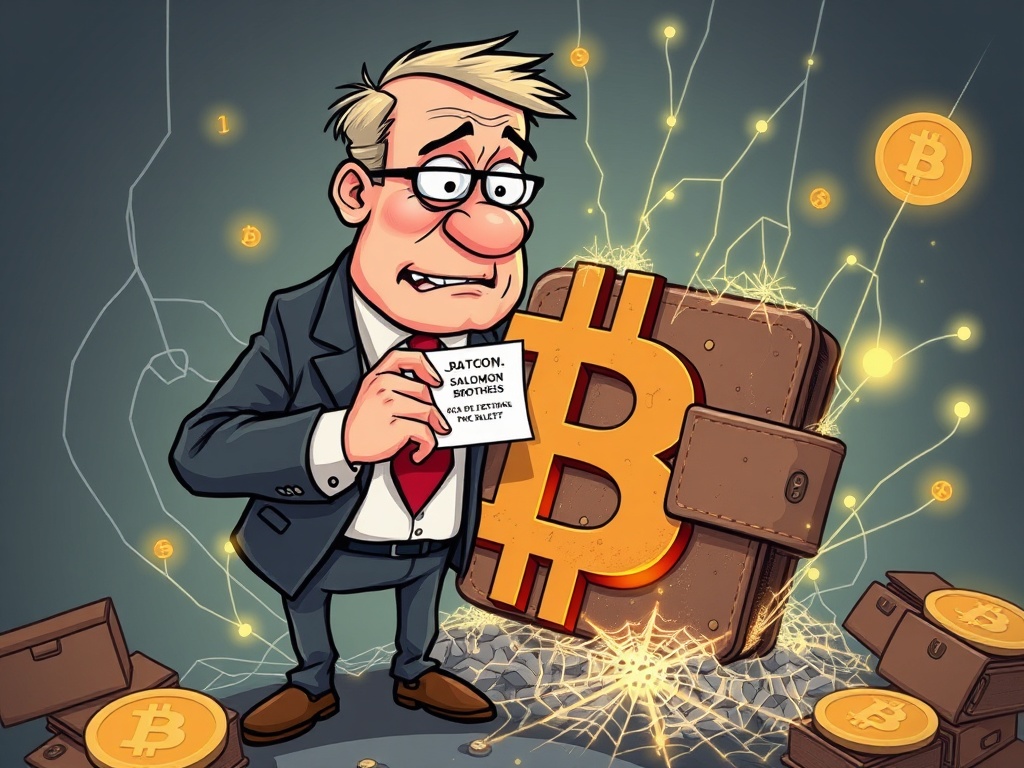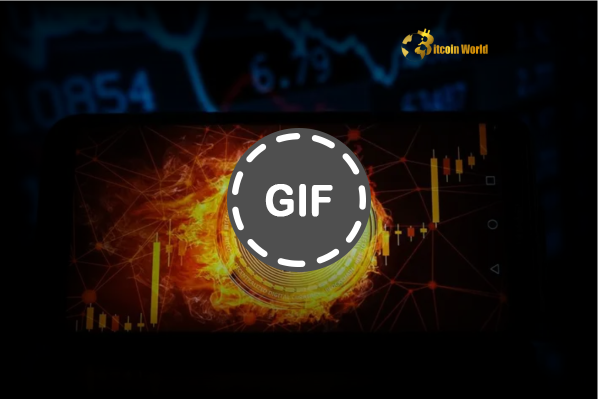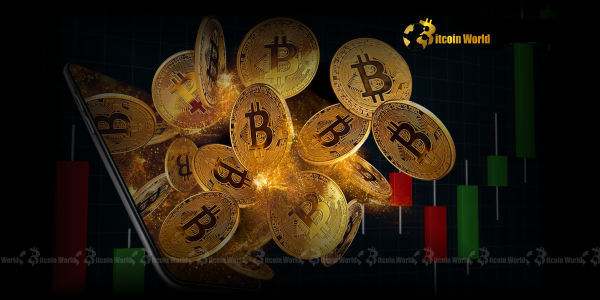BitcoinWorld

Abandoned BTC Wallets: Salomon Brothers’ Bold Move Sparks Crypto Controversy
A truly unprecedented event is unfolding in the crypto world, directly impacting millions in abandoned BTC wallets. Investment firm Salomon Brothers, part of Citigroup, has taken a bold and controversial step. They are using Bitcoin’s unique OP_Return notices to post legal claims against wallets that have been dormant for an astonishing 14 years. This audacious move, aiming to recover what they term dormant crypto funds, has ignited a fiery debate around property rights and the future of Bitcoin legal claims. The firm’s aggressive strategy, a first of its kind, is a significant development for anyone holding or interested in cryptocurrency.
Why Is Salomon Brothers Targeting Abandoned BTC Wallets?
Salomon Brothers, a name long associated with traditional finance, is now making significant waves in the digital asset space. Their recent action involves a rarely seen application of Bitcoin’s blockchain. Specifically, they are leveraging the OP_Return function. This function allows users to embed small amounts of data onto the blockchain, typically used for things like proving the existence of a document at a certain time. However, Salomon Brothers Bitcoin initiative is using it for a groundbreaking purpose: to serve legal notices.
These notices are addressed to wallets that have shown no activity for over a decade. The firm asserts rights over these assets under a “Doctrine of Abandonment,” a legal principle typically applied to physical property. The sheer volume of potentially recoverable assets, particularly from long-forgotten abandoned BTC wallets, makes this an enticing prospect for the investment firm.
- Target Wallets: The primary focus is on wallets that have remained dormant for 14 years, indicating potential abandonment.
- High-Profile Example: One notable recipient of these OP_Return notices is the infamous 1Feex address, which holds a staggering 80,000 BTC, valued at billions of dollars.
- Response Window: Wallet owners have a critical 90-day period to respond to these notices. Failure to do so could result in the forfeiture of their assets to Salomon Brothers.
This approach highlights a new frontier in legal disputes within the decentralized world, specifically targeting long-forgotten abandoned BTC wallets and their considerable value.
How Do Bitcoin Legal Claims Work on the Blockchain?
The core of Salomon Brothers’ initiative rests on the “Doctrine of Abandonment.” This doctrine suggests that if property is intentionally relinquished by its owner, it can then be claimed by others. Applying this to Bitcoin, however, introduces significant complexities and sparks considerable legal debate. Critics argue that simply being dormant does not equate to abandonment in the digital realm, especially given the nature of self-custody.
The firm states their goals are multifaceted:
- Repossession: To reclaim what they view as abandoned funds.
- Restitution: To potentially use these funds for restitution, though the specifics of who would receive this restitution are not yet fully clear. This could involve past legal settlements or other obligations.
This bold move has, predictably, created a stir. Legal experts are questioning the enforceability of such claims on a decentralized network. Can a traditional legal doctrine truly apply to digital assets in the same way? The answer remains uncertain, and these Bitcoin legal claims are setting a new, potentially contentious, precedent for the entire industry.
The use of OP_Return notices as a formal legal instrument is particularly novel. While the data embedded is public, the legal standing of such a notice on a blockchain, without traditional service of process, is a major point of contention.
What is the Impact on Dormant Crypto Funds and the Market?
The immediate impact of these OP_Return notices is already visible. According to CoinDesk, some owners of targeted wallets have reacted swiftly. They have moved their assets, demonstrating a clear intention not to abandon their funds. This reaction underscores the potential for significant legal challenges and the active engagement of long-term holders, some of whom may have simply lost access or forgotten about their holdings.
For the broader ecosystem, this situation raises critical questions about the security and long-term viability of self-custody:
- Security Concerns: Does this create a new vector for targeting dormant crypto funds, potentially encouraging malicious actors to attempt similar claims?
- Owner Awareness: How many owners of such wallets are even aware of these blockchain-based notices, especially those who may have truly forgotten their keys?
- Future Precedent: Could this pave the way for other entities, including governments or other investment firms, to pursue similar Bitcoin legal claims against forgotten digital assets?
The actions taken by the Salomon Brothers Bitcoin initiative are forcing a re-evaluation of what it means to truly “own” digital assets, especially when private keys are lost or forgotten. The debate around property rights in the crypto space is intensifying, and the outcome of this case will be closely watched by regulators, investors, and legal professionals worldwide.
What’s Next for the Future of Abandoned BTC Wallets?
The 90-day response window is a critical period. The outcome will likely shape future approaches to reclaiming dormant crypto funds and influence the development of crypto law globally. This situation serves as a stark reminder for all cryptocurrency holders to secure their assets diligently and ensure robust access to their private keys. It also highlights the need for clearer legal frameworks surrounding digital asset ownership and abandonment.
The pioneering use of OP_Return notices by Salomon Brothers has opened a new chapter in the intersection of traditional finance and decentralized digital assets. The resolution of these Bitcoin legal claims will undoubtedly set a significant precedent for the industry, potentially redefining ownership and abandonment in the crypto world for years to come.
In conclusion, Salomon Brothers’ audacious attempt to claim abandoned BTC wallets through blockchain-based legal notices is a landmark event. It highlights the evolving legal landscape of digital assets and the inherent challenges of applying traditional laws to a decentralized system. The outcome of this bold initiative will have profound implications for the future of property rights in the crypto space, urging all stakeholders to pay close attention and consider the long-term implications for their own digital holdings.
Frequently Asked Questions (FAQs)
- What are OP_Return notices?
- OP_Return notices are small pieces of data embedded into a Bitcoin transaction, allowing users to write arbitrary information onto the blockchain. Salomon Brothers is using them to post legal claims to specific wallet addresses.
- What is the “Doctrine of Abandonment”?
- It’s a legal principle stating that if an owner intentionally relinquishes property, it can be claimed by others. Salomon Brothers is attempting to apply this traditional doctrine to Bitcoin holdings that have been dormant for many years.
- Which high-profile wallet is affected?
- The 1Feex address, known for holding approximately 80,000 BTC, is among the wallets that received an OP_Return notice from Salomon Brothers.
- What should an owner of a dormant wallet do?
- If you own a dormant wallet, it’s crucial to check its activity and consider moving your assets to demonstrate continued ownership. Consulting with a legal professional specializing in crypto law is highly recommended.
- Will this set a precedent for other crypto assets?
- Yes, the outcome of Salomon Brothers’ actions could set a significant legal precedent for how traditional legal concepts like abandonment are applied to decentralized digital assets, potentially affecting other cryptocurrencies beyond Bitcoin.
Did you find this deep dive into Salomon Brothers’ groundbreaking move insightful? Share this article with your network on social media to spark further discussion about the future of Bitcoin legal claims and digital asset ownership!
To learn more about the latest crypto market trends, explore our article on key developments shaping Bitcoin institutional adoption.
This post Abandoned BTC Wallets: Salomon Brothers’ Bold Move Sparks Crypto Controversy first appeared on BitcoinWorld and is written by Editorial Team





